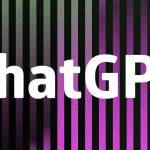By The Malketeer
Search Without the Noise: A Clean Interface That Puts Users First
OpenAI is stepping up its game and making waves in the search engine market.
In a move that escalates its rivalry with Google, OpenAI announced that it is rolling out real-time internet search capabilities to all users of ChatGPT—not just its premium subscribers.
This latest upgrade, revealed on December 17, brings an exciting new dynamic to the battle for web search supremacy.
Unlike Google’s ad-heavy ecosystem, OpenAI’s search feature promises a cleaner, clutter-free experience.
The AI-powered search engine delivers fast, timely answers while citing links to relevant sources—a stark contrast to traditional search engines that drown users in ads and irrelevant content.
It’s a step toward making web search less transactional and more conversational.
Millions of Users, Real-Time Answers, No New Apps Needed
Instead of launching a standalone product, OpenAI has integrated its search capabilities seamlessly into ChatGPT, enhancing its already-popular chatbot.
According to Adam Fry, OpenAI’s Search product lead, this rollout is hitting hundreds of millions of users globally, marking one of the largest AI updates to date.
Users can enable search by default or manually activate it through a web search icon.
For a long time, AI chatbots like ChatGPT and Claude have grappled with outdated knowledge cutoffs.
This new feature addresses that gap, unlocking real-time answers powered by live web data.
Think of it as a conversational Google, but one that feels human, intuitive, and, most importantly, up to date.
Microsoft, Google, and the Billion-Dollar Stakes of AI Search
This latest upgrade doesn’t just target Google—it raises fresh questions about OpenAI’s deep ties to Microsoft, a major investor in the company.
Microsoft, which has been trying to boost Bing’s market share, is now closely aligned with a ChatGPT-powered search that directly competes with Google’s dominance.
Sam Altman, OpenAI’s ambitious CEO, has steered the company to new heights, achieving a jaw-dropping valuation of US$157 billion in its latest fundraising round.
Backed by heavyweights like Microsoft, SoftBank, and Nvidia, OpenAI is becoming more than just a leader in generative AI—it’s positioning itself as a powerhouse in the future of the internet.
However, this massive expansion comes with a hefty price tag.
Rolling out search to millions of users will dramatically increase OpenAI’s computing costs, a challenge for any AI company operating at scale.
Will OpenAI Finally Break Google’s Monopoly?
OpenAI’s search feature could signal a turning point in the tech landscape.
The company is betting on its ability to offer something Google and Bing haven’t mastered: AI-powered search that’s free from ads, frictionless, and conversation-driven.
Users who are tired of the clutter might find ChatGPT’s clean, source-backed answers irresistible.
Still, Google isn’t standing still.
With its own AI tools integrated into search results, the search giant remains formidable.
But with OpenAI now playing in the same league, the stage is set for a high-stakes battle that could redefine how billions of people search for information online.
The question now is: Can ChatGPT’s simplicity and intelligence finally crack Google’s decades-old monopoly?
MARKETING Magazine is not responsible for the content of external sites.











